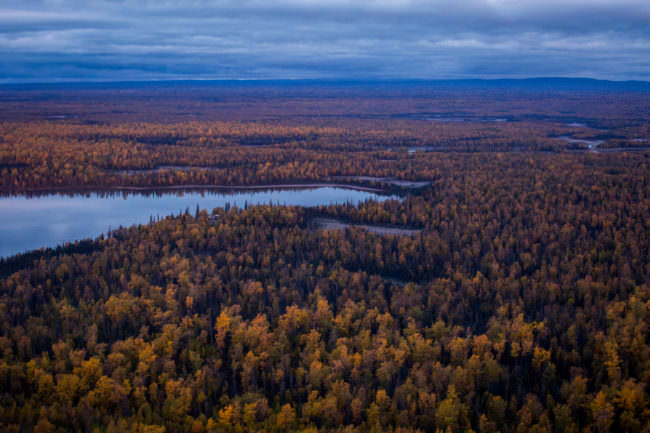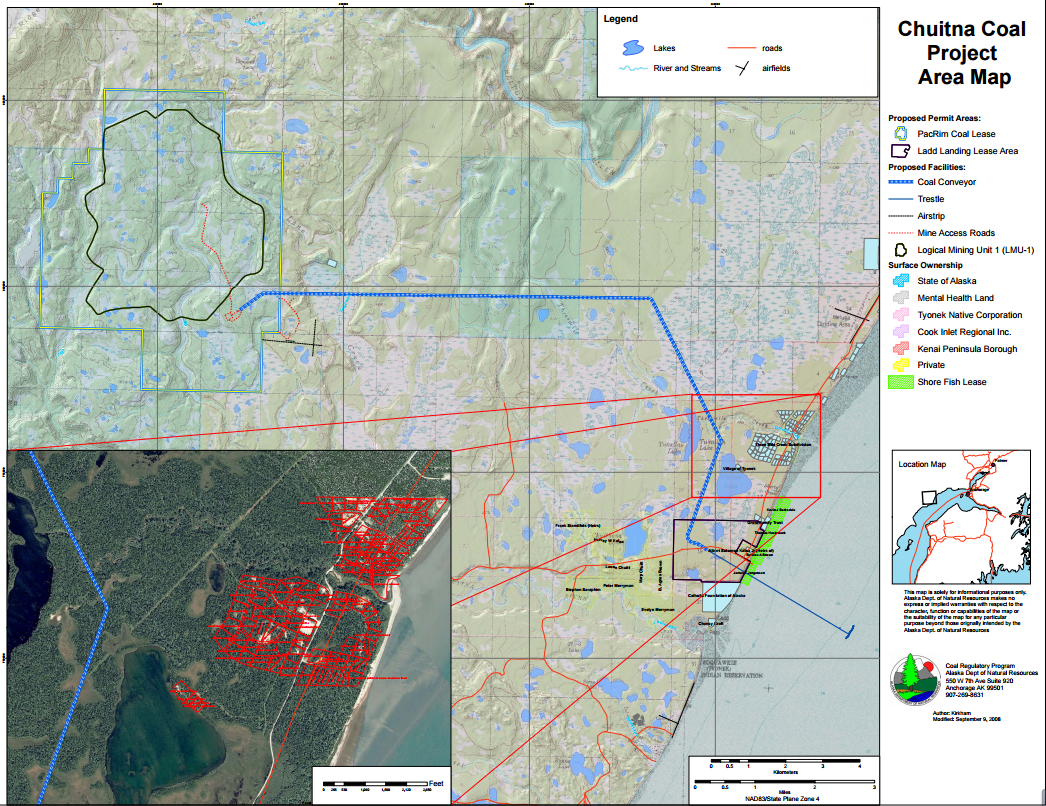
Residents of the tiny Cook Inlet village of Tyonek are celebrating after news that a company attempting to develop a massive coal mine near their village has shelved the project.
PacRim Coal has been pursuing the Chuitna Coal Project for more than a decade, but the company has been fighting with environmental groups, members of the Tyonek native village and a regulatory process that required permits from several state and federal agencies.
Last week, the company told state and federal regulatory agencies that it would no longer pursue permitting on the project.
Janelle Baker got a text at 7:50 a.m. Monday morning with news that has spread like wildfire through her home village of Tyonek.
“Well, I yelled in joy. Saying ‘yes’ that they finally stopped,” Baker said.
He means PacRim Coal mining company. Baker and many other residents of the village have been fighting a proposed coal mine built on the Chuitna River, about 45 miles southwest of Anchorage and less than 10 miles from her village.
Last week, the company told state and federal regulators that it is shelving the project and won’t move forward with the permit process. State officials said the company told them it was looking for a funding partner, and couldn’t find one.
And the news percolated through the village over the weekend.

Arthur Standifer is the president of Tyonek’s native council. He said he called at least 20 people to share the news.
“What it means for us is our fish will continue to be here for future generations, also our wildlife, like the bears and the moose and the other animals will be secure and they’ll be here. They’ll have a safe place to be,” Standifer said.
The Chuitna coal mine has been in development for decades. The project got its final environmental approval from the Environmental Protection Agency back in 1990, but coal prices crashed and it didn’t move forward.
The project was rekindled in 2006, but it has faced both a long and complex regulatory permitting process through state and federal agencies. And it faced stiff opposition from tribal members and environmental groups.
But, while the company has shelved the project, a move many in Tyonek consider a win, that doesn’t mean it’s dead.
“If PacRim or another company got access to the leases, it’s possible for them to restart the project,” Russell Kirkham said. He manages the state’s coal regulatory program. “If that was to happen fairly quickly, they could possibly start fairly close to where they are now in terms of the process.”
And, it’s not uncommon for there to be a long lead time in developing projects like this.
Kyle Moselle, a large mine project manager for the Alaska Department of Natural Resources, said that it’s always surprising when a company backs away from a permitting process because it costs a lot of money to make it through.
“Mining of any sort, whether it’s surface mining like a coal project like Chuitna, or load mining …there’s no guarantees and it’s a rigorous review process,” Moselle said.
Back in Tyonek, Arthur Standifer said villagers are cautiously optimistic about PacRim’s decision.
“At this point in time, it’s just a victory for us,” Standifer said. “But we’ll keep an ear to the ground and see what’s going to happen.”
Moselle said he hopes people understand the context and the timeline for a project like PacRim’s and that the state is ready to review any proposal like it that would develop the state’s resources.
Rashah McChesney is a photojournalist turned radio journalist who has been telling stories in Alaska since 2012. Before joining Alaska's Energy Desk , she worked at Kenai's Peninsula Clarion and the Juneau bureau of the Associated Press. She is a graduate of Iowa State University's Greenlee Journalism School and has worked in public television, newspapers and now radio, all in the quest to become the Swiss Army knife of storytellers.




